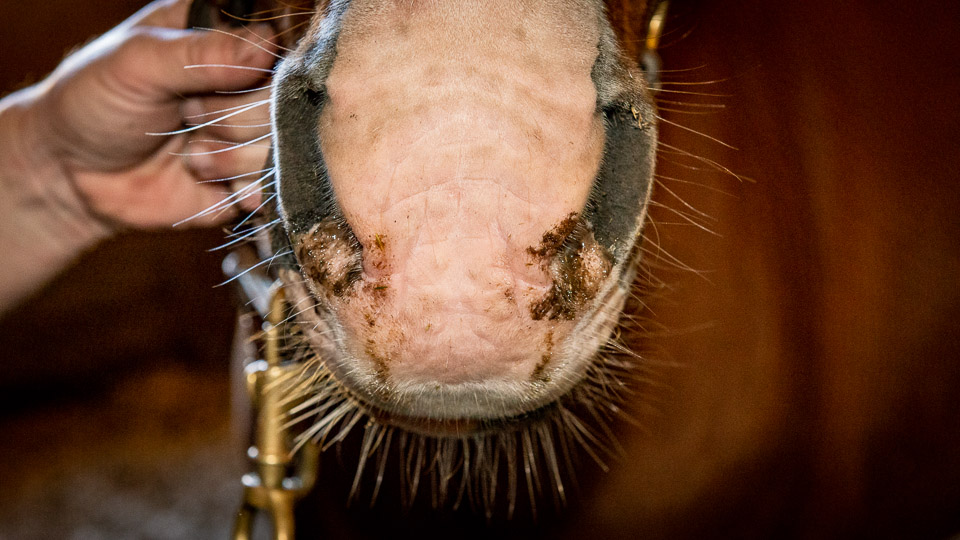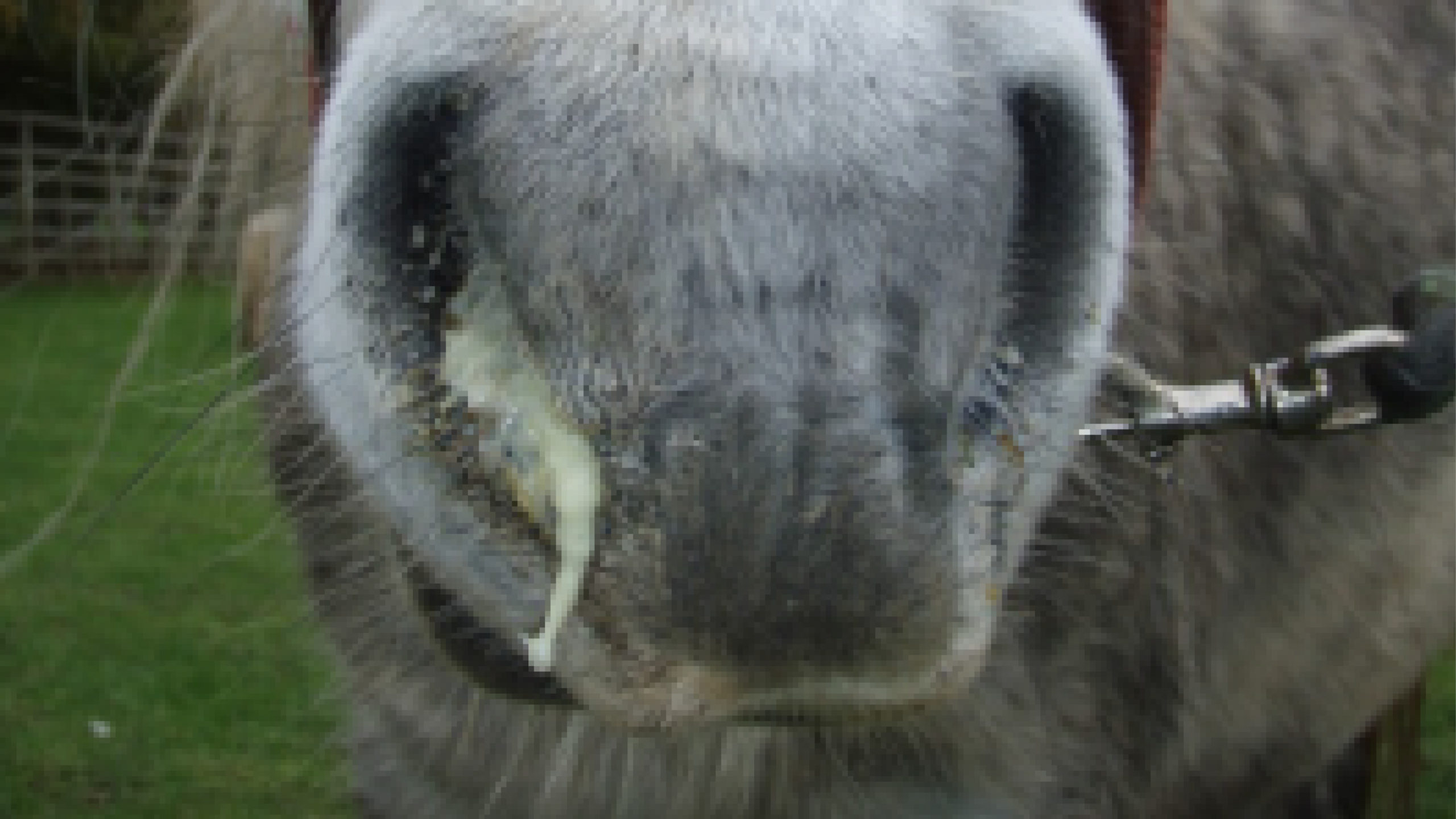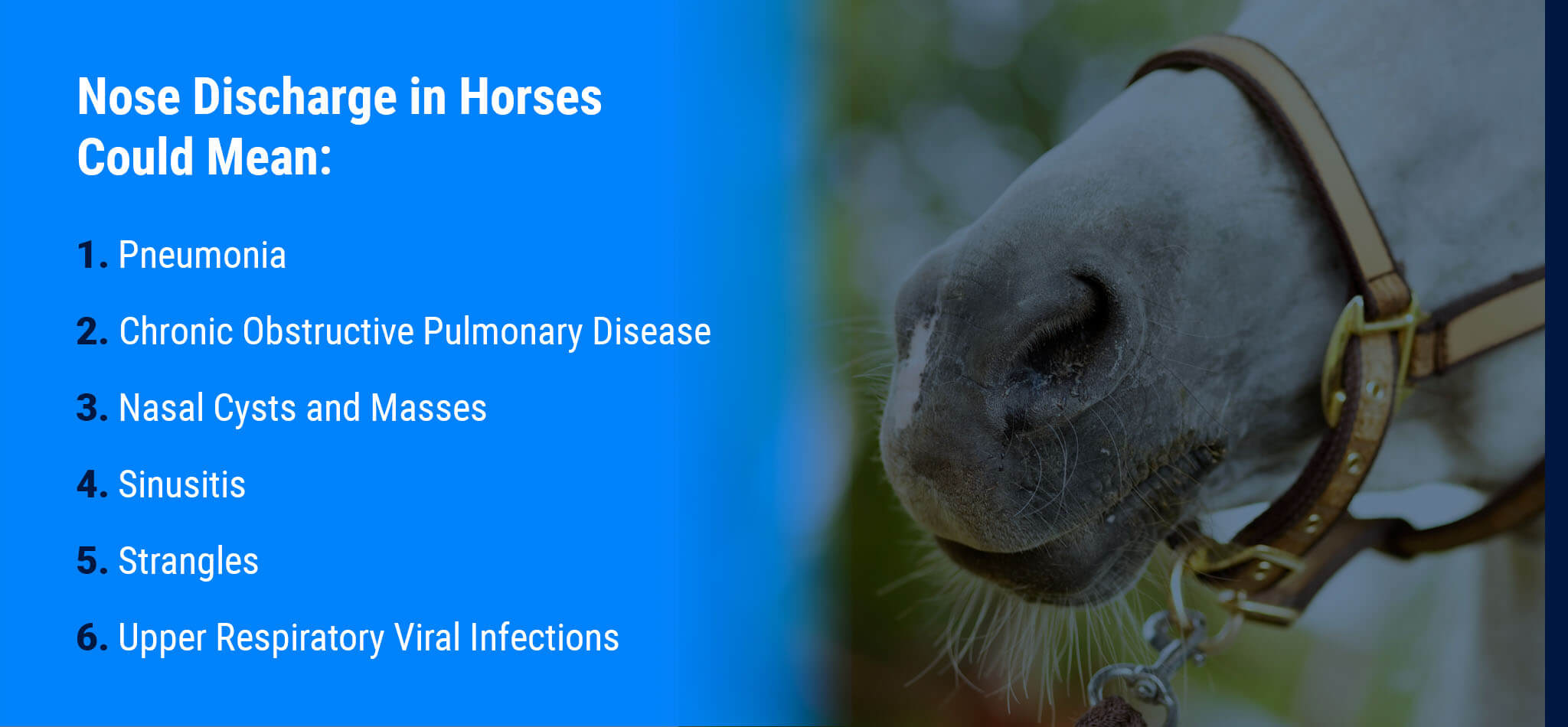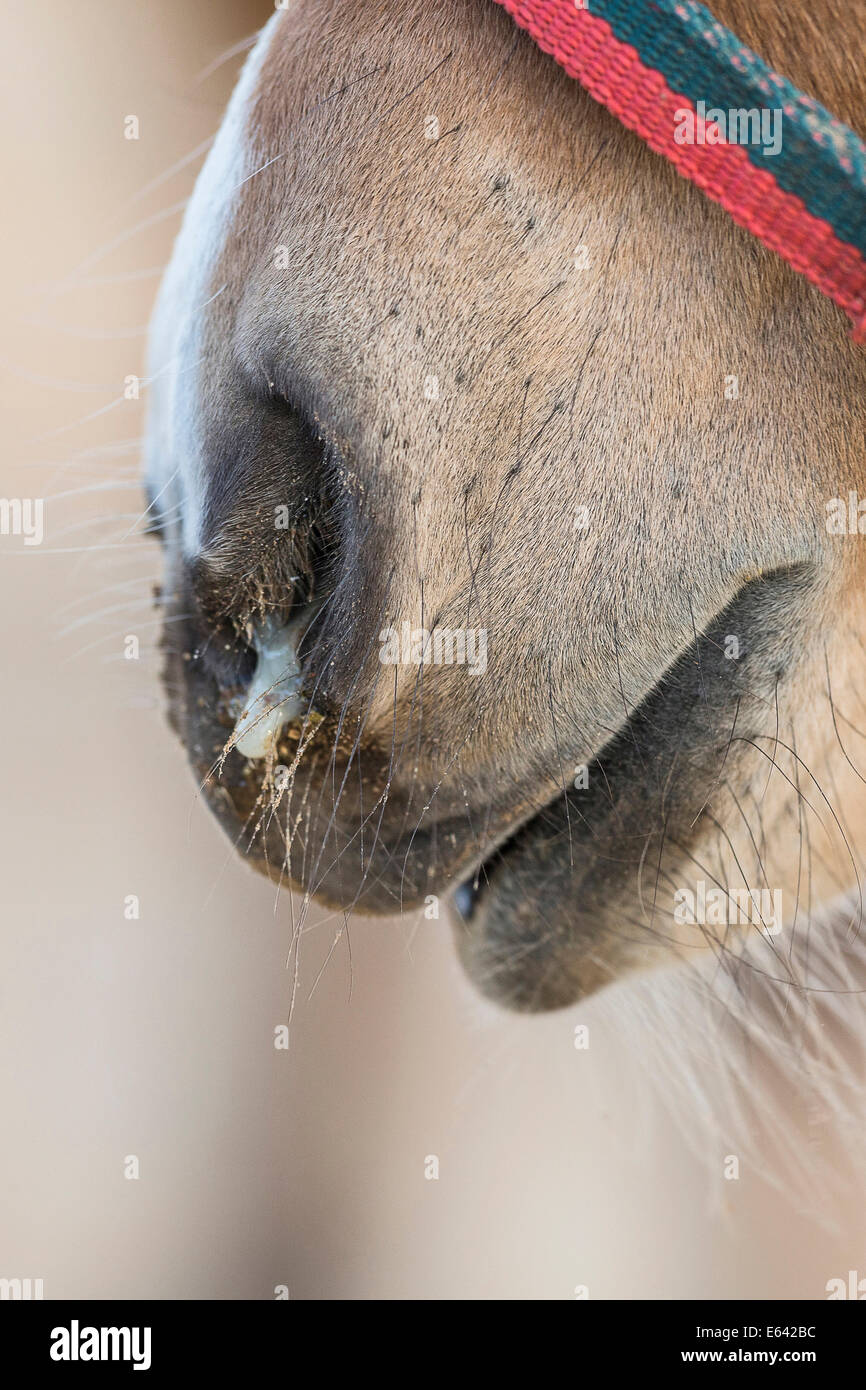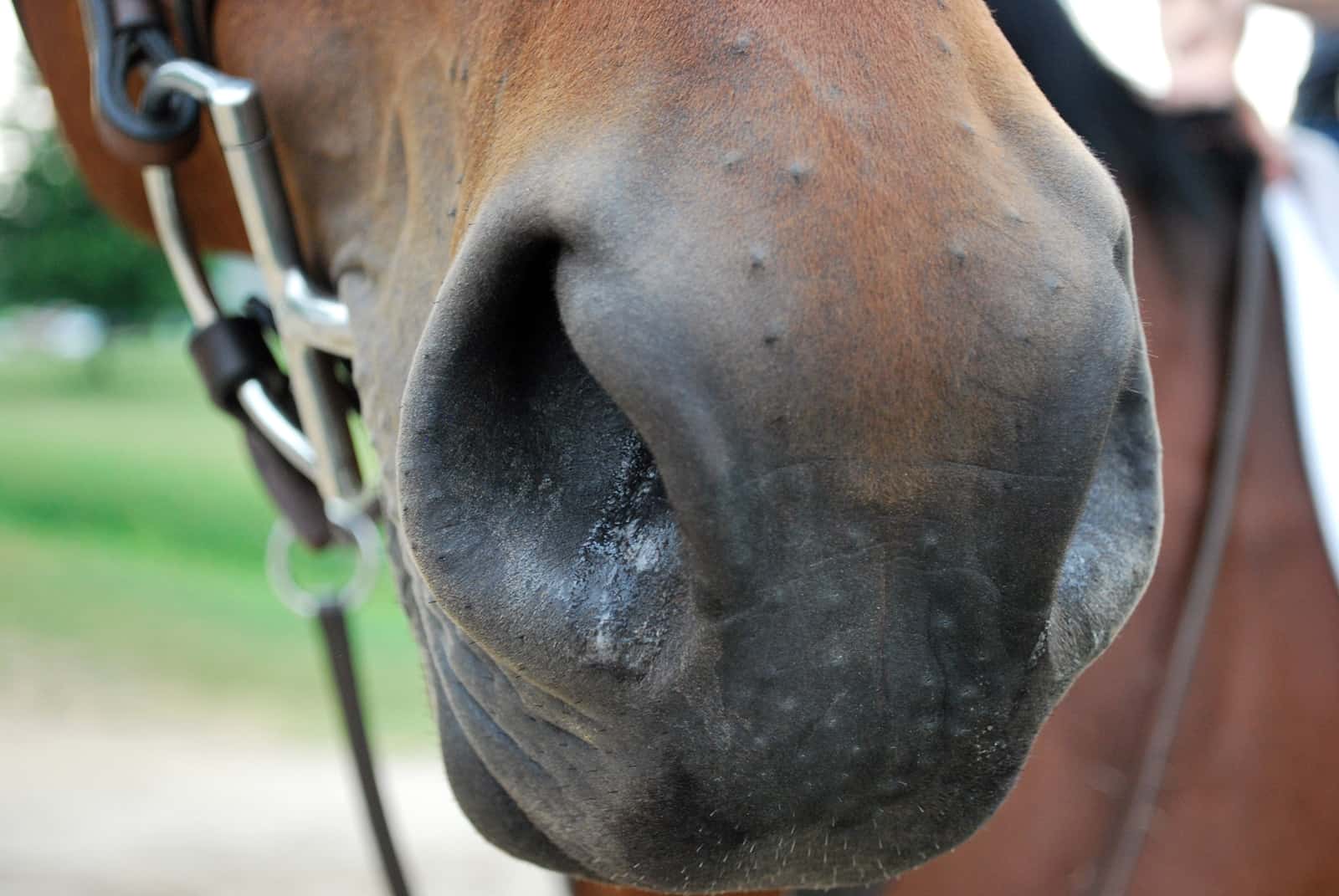Horse With Nasal Discharge
Horse With Nasal Discharge - Determining the source and cause of nasal discharge can be a challenge to diagnose in the horse due to the complicated anatomy of their. This discharge can vary in. A runny nose in horses, also known as nasal discharge, is when fluid flows from the horse’s nostrils. In horses, if a thick nasal discharge is seen emanating specifically from one nostril, it indicates the possibility of a sinus infection.
Determining the source and cause of nasal discharge can be a challenge to diagnose in the horse due to the complicated anatomy of their. A runny nose in horses, also known as nasal discharge, is when fluid flows from the horse’s nostrils. In horses, if a thick nasal discharge is seen emanating specifically from one nostril, it indicates the possibility of a sinus infection. This discharge can vary in.
A runny nose in horses, also known as nasal discharge, is when fluid flows from the horse’s nostrils. Determining the source and cause of nasal discharge can be a challenge to diagnose in the horse due to the complicated anatomy of their. In horses, if a thick nasal discharge is seen emanating specifically from one nostril, it indicates the possibility of a sinus infection. This discharge can vary in.
Horse Respiratory System Nasal Discharge The Horse's Advocate
In horses, if a thick nasal discharge is seen emanating specifically from one nostril, it indicates the possibility of a sinus infection. This discharge can vary in. Determining the source and cause of nasal discharge can be a challenge to diagnose in the horse due to the complicated anatomy of their. A runny nose in horses, also known as nasal.
Close up of a horse sick with horse flu (Equine influenza) and a green
A runny nose in horses, also known as nasal discharge, is when fluid flows from the horse’s nostrils. This discharge can vary in. In horses, if a thick nasal discharge is seen emanating specifically from one nostril, it indicates the possibility of a sinus infection. Determining the source and cause of nasal discharge can be a challenge to diagnose in.
Nose discharge 11 equine influenza in Horses (Equis) Vetlexicon
In horses, if a thick nasal discharge is seen emanating specifically from one nostril, it indicates the possibility of a sinus infection. This discharge can vary in. A runny nose in horses, also known as nasal discharge, is when fluid flows from the horse’s nostrils. Determining the source and cause of nasal discharge can be a challenge to diagnose in.
Strangles symptoms can include nasal discharge Bransby Horses
In horses, if a thick nasal discharge is seen emanating specifically from one nostril, it indicates the possibility of a sinus infection. This discharge can vary in. A runny nose in horses, also known as nasal discharge, is when fluid flows from the horse’s nostrils. Determining the source and cause of nasal discharge can be a challenge to diagnose in.
Discharge From Horses Nose Should I Be Concerned?
This discharge can vary in. A runny nose in horses, also known as nasal discharge, is when fluid flows from the horse’s nostrils. In horses, if a thick nasal discharge is seen emanating specifically from one nostril, it indicates the possibility of a sinus infection. Determining the source and cause of nasal discharge can be a challenge to diagnose in.
Domestic discharge hires stock photography and images Alamy
A runny nose in horses, also known as nasal discharge, is when fluid flows from the horse’s nostrils. In horses, if a thick nasal discharge is seen emanating specifically from one nostril, it indicates the possibility of a sinus infection. Determining the source and cause of nasal discharge can be a challenge to diagnose in the horse due to the.
Equine Influenza Nasal Discharge
In horses, if a thick nasal discharge is seen emanating specifically from one nostril, it indicates the possibility of a sinus infection. This discharge can vary in. A runny nose in horses, also known as nasal discharge, is when fluid flows from the horse’s nostrils. Determining the source and cause of nasal discharge can be a challenge to diagnose in.
Nose nasal discharge in horses Vetlexicon Equis from Vetlexicon
In horses, if a thick nasal discharge is seen emanating specifically from one nostril, it indicates the possibility of a sinus infection. A runny nose in horses, also known as nasal discharge, is when fluid flows from the horse’s nostrils. Determining the source and cause of nasal discharge can be a challenge to diagnose in the horse due to the.
Zoetis, The Horse Partner for Flu Week The Horse
In horses, if a thick nasal discharge is seen emanating specifically from one nostril, it indicates the possibility of a sinus infection. This discharge can vary in. Determining the source and cause of nasal discharge can be a challenge to diagnose in the horse due to the complicated anatomy of their. A runny nose in horses, also known as nasal.
Nasal Discharge The Horse's Advocate
A runny nose in horses, also known as nasal discharge, is when fluid flows from the horse’s nostrils. Determining the source and cause of nasal discharge can be a challenge to diagnose in the horse due to the complicated anatomy of their. This discharge can vary in. In horses, if a thick nasal discharge is seen emanating specifically from one.
This Discharge Can Vary In.
A runny nose in horses, also known as nasal discharge, is when fluid flows from the horse’s nostrils. Determining the source and cause of nasal discharge can be a challenge to diagnose in the horse due to the complicated anatomy of their. In horses, if a thick nasal discharge is seen emanating specifically from one nostril, it indicates the possibility of a sinus infection.
